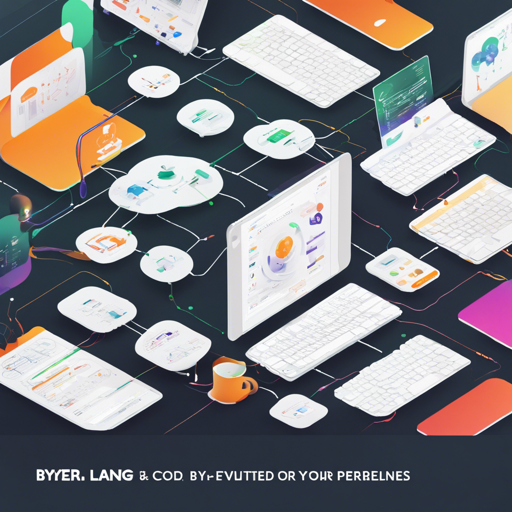Byzer (formerly MLSQL) is a low-code, open-source, and distributed programming language crafted for efficient data pipeline management, analytics, and AI in a cloud-native manner. With the core design protocol stating that “everything is a table”, Byzer offers a simplified SQL-like syntax that significantly minimizes human effort in data development.
Understanding Byzer Architecture
In a similar way that a conductor leads an orchestra, the Byzer engine harmonizes various data management tasks without needing to directly interact with complex computing frameworks like Spark. This means that developers can breathe easy, focusing on building data products through the Byzer framework without getting tangled in the intricacies of data manipulation.
For instance, the Byzer organization has created a data app called Byzer Notebook, which offers an intuitive GUI for notebook interaction workflows, allowing seamless integration for users.
Exploring Byzer Improvement Proposal (BIP)
The Byzer project endorses community collaboration via the BIP (Byzer Improvement Proposal). This initiative allows users to check out forthcoming feature designs or architecture improvements, fostering a collaborative environment.
Getting Started: Online Trial and Installation
To get a firsthand experience with Byzer-lang, you can visit the official website at www.byzer.org to try out Byzer-lang and Byzer Notebook online.
How to Install Byzer
- For **dev/test purposes**: Download the Byzer All In One Package, extract it and execute the following commands:
$ cd BYZER_HOME
$ ./bin/byzer.sh startByzer Code Example
Here’s a practical example of how to interact with the GitHub API using Byzer. Think of it as following a recipe to cook a delightful dish:
- Set the necessary ingredients (API URL and parameters).
SET org_name=byzer-org;
SET GITHUB_ORGANIZATION_URL=https://api.github.com/orgs/$org_name;LOAD Rest.$GITHUB_ORGANIZATION_URL
where config.connect-timeout=10s
and config.method=GET
and header.accept=application/vnd.github.v3+json
as github_org;select string(content) as content
from github_org as response_content;select content.*
from github_org as org_info;save overwrite org_info
as delta.github_info_db.byzer_org;Troubleshooting Common Issues
Having trouble? Here are some common troubleshooting steps:
- Ensure that your Byzer engine is running by checking the status in your terminal.
- If the API doesn’t load, verify that your internet connection is stable and the API URL is accessible.
- For issues with the Byzer Notebook, try clearing your cache or reloading the page.
- Make sure you have the correct dependencies installed if you encounter build errors.
For more insights, updates, or to collaborate on AI development projects, stay connected with fxis.ai.
At fxis.ai, we believe that such advancements are crucial for the future of AI, as they enable more comprehensive and effective solutions. Our team is continually exploring new methodologies to push the envelope in artificial intelligence, ensuring that our clients benefit from the latest technological innovations.
Contributing to Byzer-Lang
If you’re interested in contributing to this vibrant community, you can fork the repository on GitHub and create issues, even for topics not directly related to the code, such as documentation or new ideas. Check out the Issue page for more detailed guidelines.
Community Engagement
Join the Byzer community on Slack or check out our WeChat Official Account for the latest updates and collaboration opportunities.

